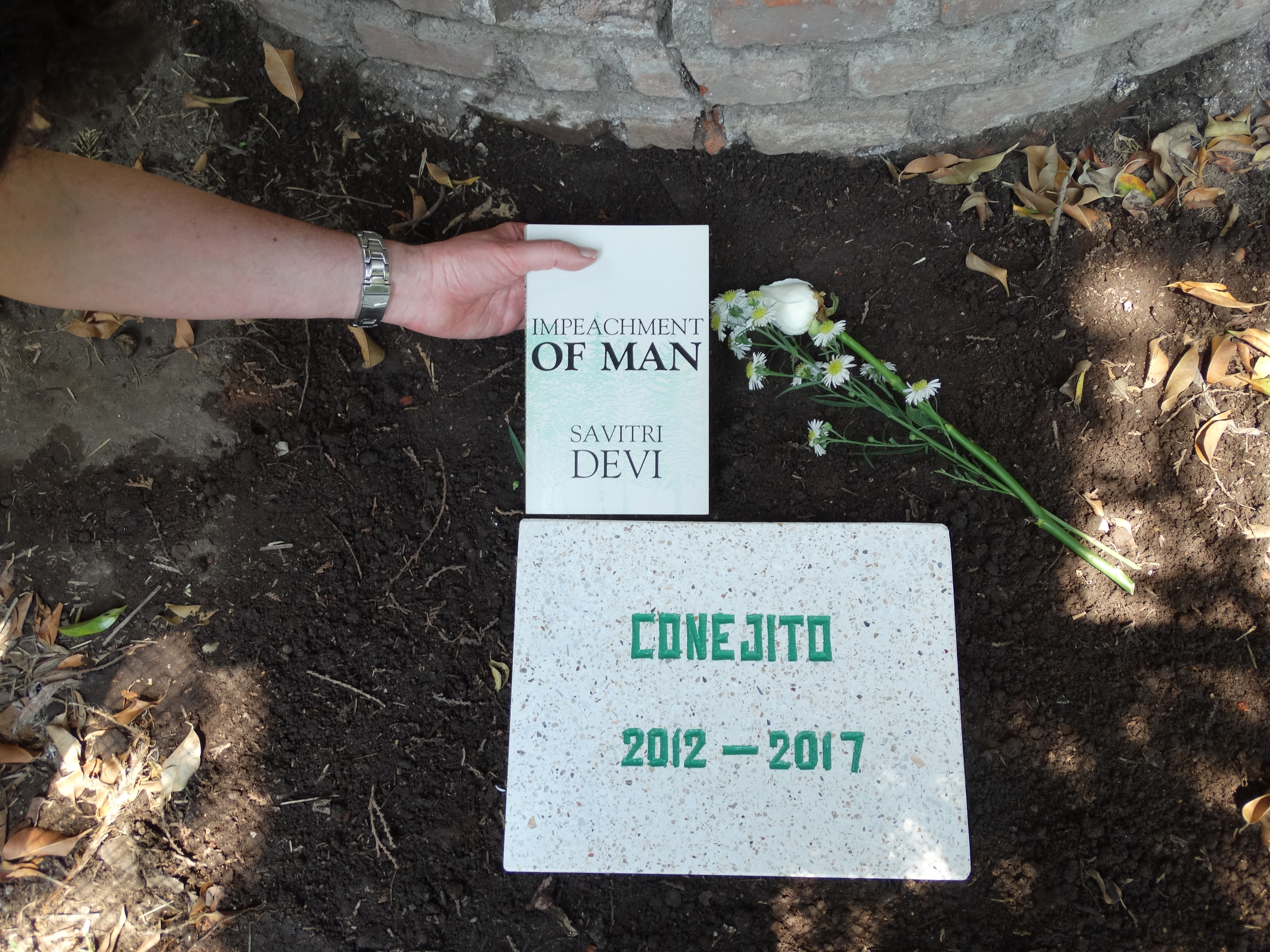by Savitri Devi
Excerpted from Chapter 5: Lights in the Night
All over the world, men in general ceased offering sacrifices as their fathers had, but accustomed themselves to the existence of slaughterhouses as to that of a so-called “necessity.”
The fact is that even the most illustrious cultures of the world—including those supposed to be relatively “humane”—are in general sadly devoid of any sense of real consideration for nonhuman suffering, as well as of any serious preoccupation concerning the welfare of nonhuman beings regarded for their own sake, and not for what man can get out of them.
Of course there have always been individuals whose natural, spontaneous love for creatures transcended the general outlook of their contemporaries and coreligionists; people like St. Francis of Assisi, who used to speak of his “brother” the wolf and his “brother” the ass, in the midst of a society and of a Church that denied an immortal soul to dumb beasts.
St. Francis himself—so they say—once vehemently rejected the idea, put forward by one of his monks, of keeping up Christmas Day without meat. And doubtless many other less holy and less well-known persons, among those who have acknowledged the brotherhood of all living creatures, were not more consistent in all they did or said or tolerated without protest.
In this present-day, nightmarish world—the outcome of the victory of the Dark Powers—we cannot, unfortunately, say a single word to the glory of the greatest of all Western men of love and of vision; of the inspired Prophet (for that is what he was) who fought for the reinstallation of a world order in tune with the divine order of nature: a world order in which beautiful healthy beasts had rights, while decadent men had none.
Whatever we could say would be bitterly held against us and our brothers in faith, and against the very cause of Life which we intend to serve. Those who know will understand us without our mentioning the godlike leader’s name. Those who do not know yet, will know one day (if they have at all any wits) and admit that we were right, and place the one great vegetarian ruler the West has ever had ahead of those most uncompromising expounders of the life-centered outlook who are, at the same time, men of action.
Note of the editor:
In the last couple of paragraphs above, Devi was referring to Hitler. Since Impeachment of Man was written in 1945-1946, the times of the Hellstorm Holocaust, Devi was not free to speak out openly. She obviously had in mind the revolution in Nazi Germany regarding the treatment of animals, which I’ll recapitulate below:
• Goebbels mentions that Hitler planned to ban slaughterhouses in the German Reich following the conclusion of the Second World War.
• Support for animal welfare in Nazi Germany was common among the country’s leadership. Heinrich Himmler for one made an effort to ban the hunting of animals.
• After Hitler had ascended to the Chancellery and the Nazis had consolidated control of the Reichstag, the Nazis immediately held a meeting to enact the ban on vivisection. Göring announced an end to the “unbearable torture and suffering in animal experiments” and said that those who “still think they can continue to treat animals as inanimate property” will be sent to concentration camps.
• On April 21, 1933, almost immediately after the Nazis came to power, the parliament began to pass laws for the regulation of animal slaughter. On November 24, 1933, Nazi Germany enacted another law called Reichstierschutzgesetz, for protection of animals. This law listed many prohibitions against the use of animals, including their use for filmmaking and other public events causing pain or damage to health.
• In 1938, animal protection was accepted as a subject to be taught in public schools and universities in Germany.
After the Hellstorm Holocaust the triumphant Dark Powers reversed these advances and imposed a regressive Diktat of cruelty toward our cousins, the animals.
